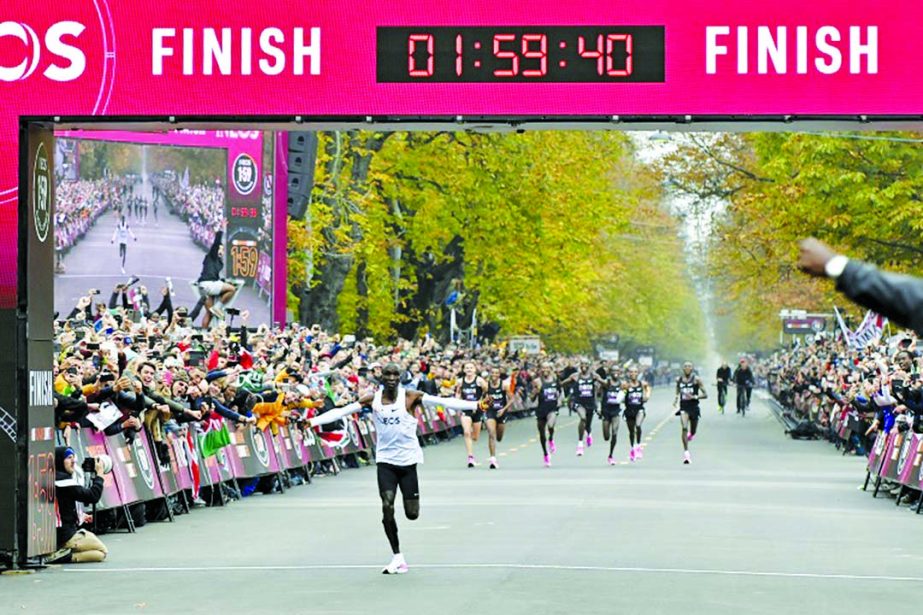
Kenya’s Eliud Kipchoge on Saturday made history, busting the mythical two-hour barrier for the marathon on a specially prepared course in a huge Vienna park.
With a time of 1hr 59min 40.2sec, the Olympic champion became the first ever to run a marathon in under two hours in the Prater park with the course readied to make it as even as possible.
The 34-year-old already holds the men’s world record for the distance with a time of 2hr 01min 39sec, which he set in the flat Berlin marathon on September 16, 2018.
But accompanied by a posse of 41 pacemakers and a car in front of them setting the pace, Kipchoge bested that mark, making good on a failed attempt two years ago in Monza, Italy.
“I have tried and I am the happiest man to run under two hours in order to inspire many people, to tell people than no human is limited,” Kipchoge said.
“I am expecting more athletes all over the world to run under two hours after today.”
He described approaching the finish line as “the best moment of my life”.
Maintaining a very regular pace at around 2:50 minutes per kilometre, he passed the finish line gesturing and smiling.
The founder of the main sponsors, Ineos, British billionaire Jim Ratcliffe, took a personal interest in the challenge and himself competes in Ironman triathlons.
“That last kilometre where he actually accelerated was super human,” Ratcliffe said.
Kipchoge had been 11 seconds in advance at mid-race as fans lining the course, many waving Kenyan flags, loudly cheered him on.
Kipchoge’s coach, Patrick Sang, said the Kenyan had “inspired all of us that we can stretch our limits in our lives”.
“Records are meant to be broken, so down the line someone will try again, but history has been made. It’s unbelievable,” Sang added.
Kipchoge told reporters earlier this week that his attempt in the Austrian capital was about “making history in this world, like the first man to go to the moon”.
Because of the way the run was set up and paced the International Association of Athletics Federations will not validate the time as a world record.
The running surface had been partly retarred and readied with other features such as a banked corner that could save time and avoid injury.
Pacemakers took turns to support him throughout the 42.195-kilometre (26.219-miles) race. They included 1,500-metre Olympic champion Matthew Centrowitz and former world champion Bernard Lagat.
The course included a 4.3 kilometre-long straight alley, which the Kenyan ran up and down several times amid dry but foggy weather.

